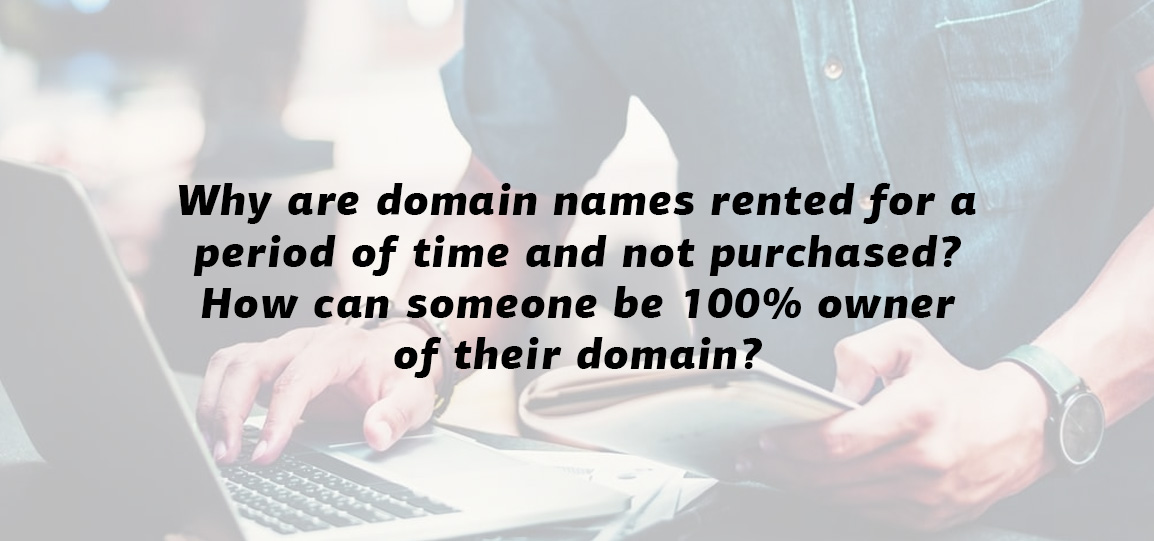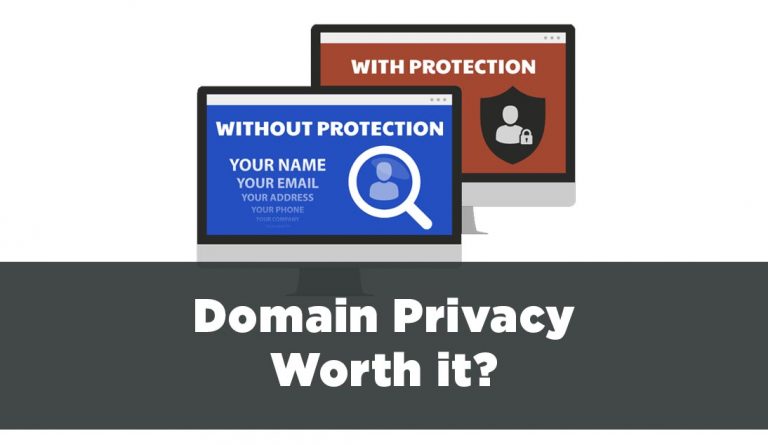Why are domain names rented for a period of time and not purchased? How can someone be 100% owner of their domain?
Why are “domain names rented”?
When you buy physical goods, you bring them home and put them in a drawer or on a shelf. You are 100% sure that the item is in your possession and that you own it. A domain name is not physical merchandise, but an intellectual property and as such, it can not follow the rules of the physical world.
Being an intellectual property, domain names are temporarily provided (for a period of time) as use right on the first-come-first-served basis, and once obtained, to be able to keep it all you have to do is renew the registration to keep it.
Basically, you are “renting” a domain name ownership from a registrar, which will communicate the ownership agreement with the domain extension operator. From that point in time, you have the exclusive rights to use that domain name, until you decide to cancel domain registration or let it expire.
Why you cannot just make a purchase and hold ownership of a domain name for an infinite period?
The main reason why you cannot outright purchase a domain name is that Domain Name System (DNS) is designed as a common, public resource available globally. As such it has to be shared. If someone would just purchase all the domain names even if he does not need them it would create a monopoly where that entity would be able to set an outrageous pricing scheme.

Keeping domain name ownership records as well as domain registration service and infrastructure online is easier with recurring domain registration, while end-users are more likely to pay a relatively small yearly fee for holding a domain name rather than an exorbitant sum that would enable them to have it “forever”.
The exception to the “first come first served” ownership rule is when another party has legal rights to a specific domain name, being an owner of a renown trademark. While some may think that registering any domain name albeit a known trademark should be allowed, in most cases it is warranted by malicious parties who would use it to extort a business or a company which invested years into building its brand or company name.
Trademark infringement is a serious legal issue, especially in western countries, and as such registering a domain name that is a perfect match for the renown trademark is not something I would recommend. It would lead to a legal dispute, and the court of law will be inclined to resolve the case in favor of the trademark owner, not the domain name owner.
However, this will not be the case if you were to register a domain name before the other company registered the trademark in question, and without the knowledge of a possible trademark being in development. Now, the company which holds the trademark will be forced to purchase domain name ownership transfer from domain name owner, on his terms.
How can someone be 100% owner of its domains?
Well, practically you can’t, but technically yes you can. Many domain registrars offer long-term domain registration with up to 10 years registration period. Domain registration price for long-term registration is usually discounted and offers significant savings when compared to a basic one-year (annual) domain registration.
You will have to submit to the registration period ownership, make the registration renewal within conditions agreed with your domain registrar, and if you follow this routine regularly then technically you will be able to hold ownership over a domain forever.

Renown domain traders and domain broker companies do have domains that are in their hold three or more years and longer.
Conclusion
Domain Name System is designed to protect both the domain end-user (owner) as well as the system itself and while it may not be the exact way some of us would want it, still it is very good design.
Following the rules of the DNS will result in meeting your domain ownership needs and continued hold on the domain names that you selected as your online presence identity or company property.
Final note what I would like to leave you with is the thought that for some very expensive domains, the owner actually rents its domain to a website for a “monthly rent fee”. Rare case but it does happen.






